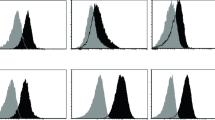Summary
Pembrolizumab, a humanized monoclonal immunoglobulin (Ig) G4 antibody that is directed against the human cell surface receptor PD-1, is a PD-1 pathway inhibitor that has been approved to treat various malignant diseases, including advanced non-small cell lung cancer (NSCLC). PD-1 is the major inhibitory receptor regulating T-cell exhaustion, and T-cells with high PD-1 expression lose their ability to eliminate cancer. PD-1 pathway blockade by pembrolizumab reinvigorates exhausted T-cells and restores their antitumor immune responses. However, reinvigorated T-cells also evoke immune-related adverse effects (irAEs), which stem from the restored activity. Currently, the pathogenic mechanisms of irAEs have not been sufficiently determined. We experienced a patient with NSCLC with high PD-L1 expression and cervical lymph node metastases, who demonstrated a good clinical response to first line pembrolizumab but suffered from a severe cutaneous adverse event. Both of his skin lesions and cervical metastases showed extensive CD8(+) PD-1(+) T-cell infiltration in immunofluorescence analysis. This finding suggests a possible contribution of reinvigorated CD8(+) PD-1(+) T-cells in anti-PD-1 therapy-induced skin rash. Intriguingly, CD8(+) T-cells in the skin rash showed higher Ki-67 expression, a proliferation marker, than those in the cervical lymph node lesion. This is the first report of an association between proliferative CD8(+) PD-1(+) T-cells and irAEs.



Similar content being viewed by others
References
Reck M, Rodríguez-Abreu D, Robinson AG et al (2016) Pembrolizumab versus chemotherapy for PD-L1-positive non-small-cell lung Cancer. N Engl J Med 375:1823–1833
Michot J, Bigenwald C, Champiat S et al (2016) Immune related adverse events with immune checkpoint blockade: a comprehensive review. Eur J Cancer 54:139–148
Wherry EJ, Kurachi M (2015) Molecular and cellular insights into T cell exhaustion. Nat Rev Immunol 15:486–499
Huang AC, Postow MA, Orlowski RJ et al (2017) T-cell invigoration to tumour burden ratio associated with anti-PD-1 response. Nature 545:60–65
Kamphorst AO, Pillai RN, Yang S et al (2017) Proliferation of PD-1+ CD8 T cells in peripheral blood after PD-1-targeted therapy in lung cancer patients. Proc Natl Acad Sci U S A 114:4993–4998
David E. Elder MB ChB. Lever's histopathology of the skin. 10th ed. Lippincott Williams & Wilkins; 2014:44–45
Wang M, Ma X, Guo L et al (2017) Safety and efficacy profile of pembrolizumab in solid cancer: pooled reanalysis based on randomized controlled trials. Drug Des Devel Ther 11:2851–2860
Freeman-Keller M, Kim Y, Cronin H et al (2016) Nivolumab in resected and Unresectable metastatic melanoma: characteristics of immune-related adverse events and association with outcomes. Clin Cancer Res 22:886–894
Nishimura H, Okazaki T, Tanaka Y et al (2001) Autoimmune dilated cardiomyopathy in PD-1 receptor-deficient mice. Science 291:319–322
Goldinger SM, Stieger P, Meier B et al (2016) Cytotoxic cutaneous adverse drug reactions during anti-PD-1 therapy. Clin Cancer Res 22:4023–4029
Acknowledgements
We thank all of the patients who contributed to this report and Yachiyo Kumamoto for her contribution to the immunofluorescent experiments.
Author information
Authors and Affiliations
Corresponding author
Ethics declarations
Conflict of interest
Dr. Isei reports personal fees from Ono Pharmaceutical CO., LTD., personal fees from Bristol-Myers Squibb, Novartis, Merck Co. and Inc., Toray Industries, Inc., Merck KGaA, Maruho Co., Ltd., and Kaken Pharmaceutical CO.,LTD., outside of the submitted work. Dr. Inoue reports grants from YAMAHA Motor, TAIHO Pharma, ONO Pharmaceutical and TAKEDA Pharmaceutical, outside of the submitted work. Dr. Imamura reports personal fees from Ono pharmaceutical co., LTD, MSD, and Bristol-Myers Squibb, outside the submitted work.
The other authors have no COIs.
Ethical approval
This article does not contain any studies with human participants or animals.
Informed consent
Informed consent was obtained from the present patient in the study.
Rights and permissions
About this article
Cite this article
Kunimasa, K., Isei, T., Nakamura, H. et al. Proliferative CD8(+) PD-1(+) T-cell infiltration in a pembrolizumab-induced cutaneous adverse reaction. Invest New Drugs 36, 1138–1142 (2018). https://doi.org/10.1007/s10637-018-0628-3
Received:
Accepted:
Published:
Issue Date:
DOI: https://doi.org/10.1007/s10637-018-0628-3




